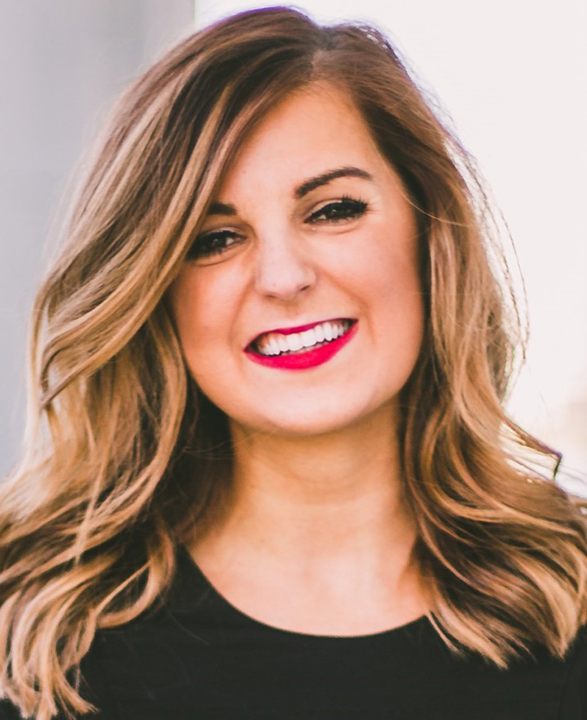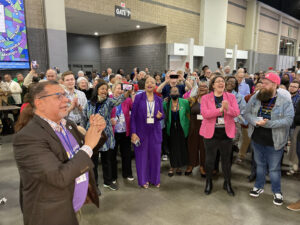
 Christians are called to love their neighbor as themselves. Our faith must transform the totality of our lives, including reforming whom and what we love. Jesus, in the parable of the good Samaritan, answers the question, “Who is my neighbor?” After He responds, we aren’t left wondering who we are to care about and how we are to care about them.
Christians are called to love their neighbor as themselves. Our faith must transform the totality of our lives, including reforming whom and what we love. Jesus, in the parable of the good Samaritan, answers the question, “Who is my neighbor?” After He responds, we aren’t left wondering who we are to care about and how we are to care about them.
Who is my neighbor?
Theologian Tim Keller says that “by depicting a Samaritan helping a Jew, Jesus could not have found a more forceful way to say that anyone at all in need – regardless of race, politics, class and religion – is your neighbor. Not everyone is your brother or sister in the faith, but everyone is your neighbor, and you must love your neighbor.”
Our love of neighbor flows directly from the love Christians have received by being adopted into the family of God. We cannot turn a blind eye when we see miscarriages of justice, and we must boldly and sacrificially work towards a just society when all of our neighbors can enjoy life and liberty.
Love of neighbor shapes Christian engagement
The measure of any society is how we treat the most vulnerable among us. Our culture is wrestling with justice and how to apply it. Justice and care for the vulnerable must go hand in hand. Various parts of society cry out for justice, those pleas must be addressed. And yet, my thoughts go to those who have no voice, who cannot raise an objection on their own.
Theologian and ethicist Carl F. H. Henry said:
“Christianity ought to be in the forefront of social reform by challenging social injustice, political humanism and evils. We must oppose all moral evils, society and personal, and point to a better way.
“Christ’s followers are to exemplify the standards of God’s kingdom, and they are to be ‘light’ and ‘salt’ in a dark and rotting society where God intends civil government to promote justice and restrain disorder.”
Love of neighbor and the little one
One part of our population is continually left behind in matters of justice: our most vulnerable neighbors in the womb. They have no voice, no platform, and therefore, sadly, no protection by the law. More than 60 million lives in this hidden segment of our society have been lost. A true understanding of justice should compel us all to plead on their behalf.
While the government has many responsibilities, chief among them is protecting innocent life and upholding justice. How much more important is that responsibility when it comes to protecting preborn persons who cannot speak for themselves?
Once-in-a-generation opportunity for justice
All of this can all change this week. Wednesday (Dec. 1), the Supreme Court heard oral arguments in a case entitled Dobbs v. Jackson Women’s Health Organization. This case is reviewing a Mississippi law entitled the “Gestational Age Act,” which prohibits abortions after 15 weeks except in a medical emergency and in cases of severe fetal abnormality. This law replaces the so-called “viability standard,” which prohibits abortions after a the point at which a baby could survive outside the womb. The issue the court will be deciding is whether pre-viability prohibitions on elective abortions are unconstitional.
In Roe v. Wade, the Court stated that the “right of privacy … is broad enough to encompass a woman’s decision whether or not to terminate her pregnancy.”
In Planned Parenthood v. Casey, the Court reaffirmed that “the woman’s right to terminate her pregnancy before viability is the most central principle of Roe v. Wade. It is a rule of law and a component of liberty we cannot renounce.” The Dobbs case marks the most important abortion case the high court has heard in a generation, because Mississippi is directly asking the court to overturn the precedents set in Roe and Casey.
For too long, the Roe and Casey decisions have allowed our nation to turn a blind eye to the plight of those who have no voice – to view these lives as a burden instead of a blessing. Christians have long pleaded the case for America to recognize the inherent dignity of our most vulnerable neighbors. Care for “the least of these” underpins our call for justice for our littlest neighbors.
The Dobbs case gives us an opportunity to do justly by our preborn neighbors. Until that happens, our nation will not be able to fully achieve the lofty goal of being a land that preserves life, liberty and the pursuit of happiness for every individual. The Court should overturn these harmful precedents, and our society, especially our churches, should be ready to stand in the gap to provide the necessary care and support for women and their babies.
Love of neighbor and care for women
If the precedents in Roe and Casey are overturned – while that will be a significant step toward establishing a true culture of life – abortion won’t go away overnight. The debate and litigation will be sent back to the states. This would be an opportunity to give women much more than the false promises of abortion. In fact, they deserve better. Abortion does not empower women. We must identify the barriers to parenthood that many women face and provide policies and services that honor the dignity and worth of women. This could look like flexible work hours or creating professional environments that are conducive for working mothers. We must be ready to help women who might feel like abortion is their only option – their only way out of an abusive situation, the only way to go to college or the only way to have a flourishing career.
We must use our time, talent and treasure working toward a culture that values both the life of the little ones in the womb and their mothers.
The justices should take this once-in-a-generation opportunity to overturn the precedents in Roe and Casey and rightly recognize the inherent dignity and worth of the preborn. By doing so, the lives of thousands of our little neighbors would be saved.
Let’s be a better society: Save lives, serve mothers and love our neighbors. All of them.
















